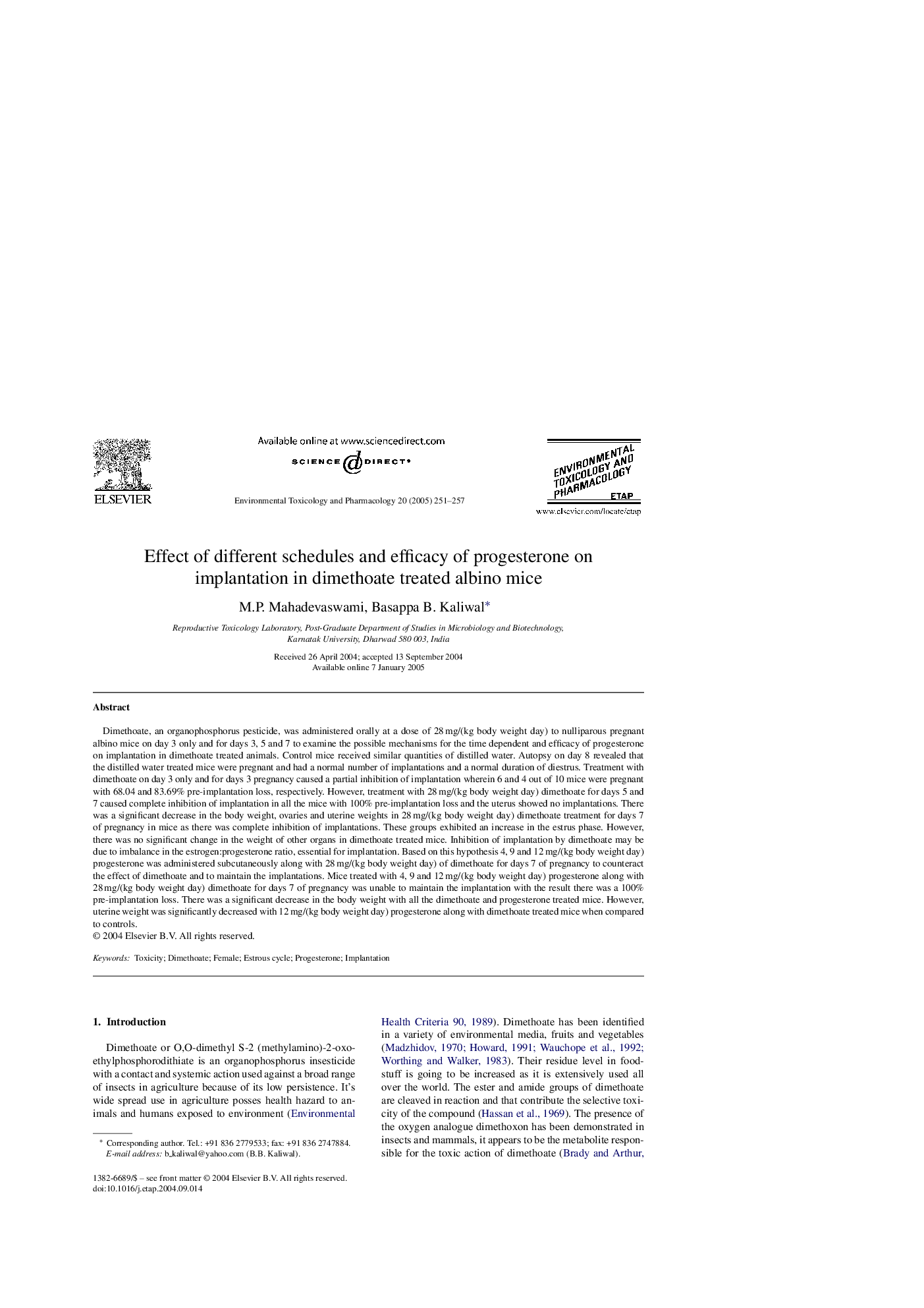| Article ID | Journal | Published Year | Pages | File Type |
|---|---|---|---|---|
| 9030134 | Environmental Toxicology and Pharmacology | 2005 | 7 Pages |
Abstract
Dimethoate, an organophosphorus pesticide, was administered orally at a dose of 28Â mg/(kg body weight day) to nulliparous pregnant albino mice on day 3 only and for days 3, 5 and 7 to examine the possible mechanisms for the time dependent and efficacy of progesterone on implantation in dimethoate treated animals. Control mice received similar quantities of distilled water. Autopsy on day 8 revealed that the distilled water treated mice were pregnant and had a normal number of implantations and a normal duration of diestrus. Treatment with dimethoate on day 3 only and for days 3 pregnancy caused a partial inhibition of implantation wherein 6 and 4 out of 10 mice were pregnant with 68.04 and 83.69% pre-implantation loss, respectively. However, treatment with 28Â mg/(kg body weight day) dimethoate for days 5 and 7 caused complete inhibition of implantation in all the mice with 100% pre-implantation loss and the uterus showed no implantations. There was a significant decrease in the body weight, ovaries and uterine weights in 28Â mg/(kg body weight day) dimethoate treatment for days 7 of pregnancy in mice as there was complete inhibition of implantations. These groups exhibited an increase in the estrus phase. However, there was no significant change in the weight of other organs in dimethoate treated mice. Inhibition of implantation by dimethoate may be due to imbalance in the estrogen:progesterone ratio, essential for implantation. Based on this hypothesis 4, 9 and 12Â mg/(kg body weight day) progesterone was administered subcutaneously along with 28Â mg/(kg body weight day) of dimethoate for days 7 of pregnancy to counteract the effect of dimethoate and to maintain the implantations. Mice treated with 4, 9 and 12Â mg/(kg body weight day) progesterone along with 28Â mg/(kg body weight day) dimethoate for days 7 of pregnancy was unable to maintain the implantation with the result there was a 100% pre-implantation loss. There was a significant decrease in the body weight with all the dimethoate and progesterone treated mice. However, uterine weight was significantly decreased with 12Â mg/(kg body weight day) progesterone along with dimethoate treated mice when compared to controls.
Related Topics
Life Sciences
Environmental Science
Health, Toxicology and Mutagenesis
Authors
M.P. Mahadevaswami, Basappa B. Kaliwal,
